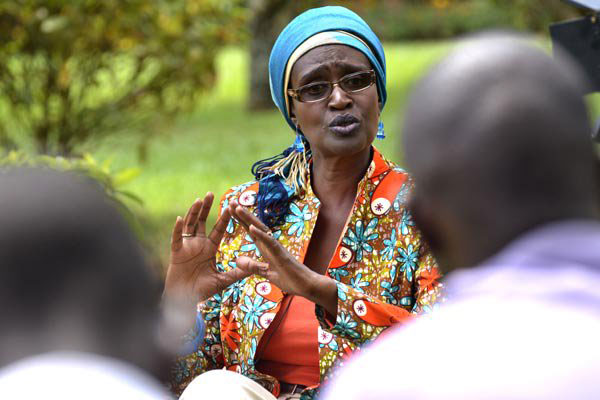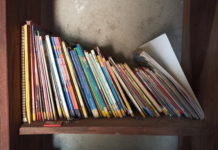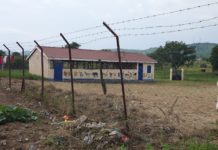I know and have seen war; its horror and cruelty in my own country. I have since supported peace processes in conflicts, but all that did not quite prepare me for my trip to the conflict-stricken South Sudan earlier this year.
Since civil war broke out there in December 2013, South Sudan has spiraled into a deeper state of emergency. It’s a brutal conflict, steeped in claims of ethnic cleansing. A deadly hunger crisis presides over parts of the country and it is the civilians; women and children who are paying the price. The palpable hope of South Sudan’s independence in 2011 – something so many of us celebrated in our region – now seems very distant.
Women – strong, hard-working and self-sacrificing– told me: “We want to walk freely, we want to farm, we want to feed our families.”
They live in a city called Malakal in a ‘Protection of Civilians’ (POC) site.
“At home, we used our hands for our work, now we have been turned into beggars and we cannot provide for our families,” Mary told me.
She lives in the site and, like many women, has been widowed through conflict.
I visited Malakal, which looks a ghost town. Malakal used to be South Sudan’s second largest city after the capital Juba. Now most of its former residents have fled to neighbouring Sudan – the country they fought fiercely to secede from for independence and peace. They now live in the POC camps.
The camp I visited is now home to many of the displaced women and girls; it is guarded by UN peacekeepers who line its outskirts, in tall watch towers. They carry heavy weaponry in case the camp is attacked, and it has been on several occasions.
It is not a far-fetched to compare these camps to open-air prisons. This is not because these people are detained – they are not. It is also not a criticism of the United Nations for creating these sites – they are needed and have undoubtedly saved countless lives so far.
However, the camps signify the tragedy people of South Sudan face: people are there for protection from armed groups. I was told that should a person walk out of this camp, they face the risk of persecution, harassment or even death.
I will never forget the women I met who told me they have to choose between their children going hungry, or risk being raped if they leave to search for food. The stories I heard are too awful to repeat. I saw the squalid conditions people live in and I heard of the hunger people are enduring.
A war of this nature, which is now so deeply rooted, is unlikely to end without a huge diplomatic effort, something which, up to now, has fallen short.
Ending the war in South Sudan must be at the top of African leaders’ political agenda. It is a catastrophe for the entire continent and our region’s biggest refugee crisis. It is a shameful failure of leadership on our continent.
There is urgent need for renewed negotiations to begin in order to bring genuine and long-lasting peace to the country. Peace may feel distant but it is not unreachable. This weekend the Intergovernmental Authority on Development (IGAD) will be holding the High-Level Revitalisation Forum in Addis Ababa. It is a critical opportunity to bring together the warring parties to seek a long-term solution to this bloody conflict.
I call upon our regional leaders to push the warring parties to make the hard choices for peace. Together with our partners, Oxfam demands regional and international powers to throw their diplomatic weight behind a transparent and inclusive peace process.
The voices of the people affected by the conflict – women like Mary – must finally be heard. I urge our leaders to give space at the negotiating table not only to those wielding the gun.
Any political process must formalise the involvement of South Sudan people, including the millions of refugees now living in Uganda, Sudan, Ethiopia, DR Congo and Kenya. This is the best way to establish lasting peace.
Citizens organisations have the right to determine the future of their country. Oxfam is supporting South Sudan civil society including refugees to come together to deliver their message to this forum.
This week, representatives from South Sudan civil society including refugee communities will present their vision to IGAD on how to create lasting peace in their country.
The longer the international community is complacent, the more they risk being complicit. Failure is not an option. To ensure a credible peace process, we need timelines, indicators and accountability.
This latest push for peace could end this war. Let us ensure it is guided by its people – not just the political elites.
No person I met in South Sudan wants – and none of our leaders should want – countless more lives to be ruined through this war.
Ms Byanyima is Executive Director of Oxfam
International and former Member of the Ugandan Parliament.
Article originally from the Daily Monitor.





